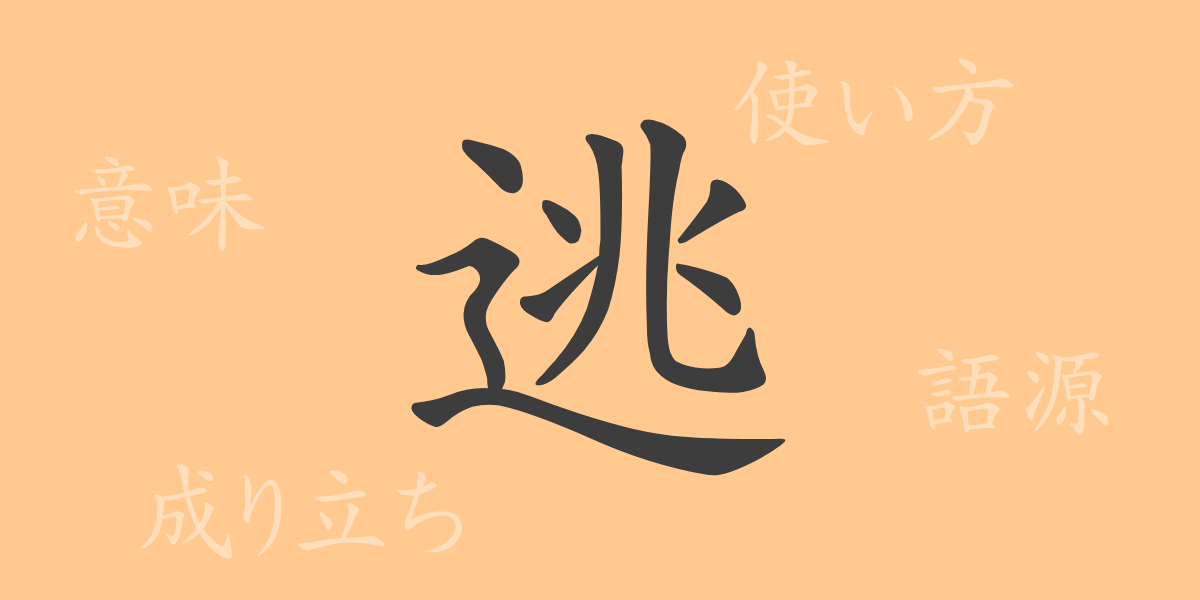Among the many Kanji that enrich Japanese expression, ‘逃 (とう)’ is frequently used in everyday life, appearing in numerous idioms and proverbs. This article delves into the character ‘逃’, exploring its historical background and contemporary usage to uncover its allure.
Origins of ‘逃 (とう)’
The Kanji ‘逃’ was formed in ancient China, combining ‘兆’, which indicates ‘omens’ or ‘premonitions’, with ‘辶 (しんにょう)’, a radical meaning ‘to walk’ or ‘to move’. This combination suggests the action of escaping, symbolizing the act of protecting oneself from danger or difficulty.
Meaning and Usage of ‘逃 (とう)’
The primary meanings of ‘逃’ include ‘to escape’ and ‘to evade’, encompassing both the physical act of moving to a new location and the abstract concept of avoiding or escaping something. In Japanese, it is used in verbs such as ‘逃げる (にげる)’ (to flee), ‘逃す (にがす)’ (to let escape), ‘逃れる (にがれる)’ (to evade), and in nouns like ‘逃避 (とうひ)’ (evasion) and ‘逃亡 (とうぼう)’ (fleeing).
Readings, Stroke Count, and Radical of ‘逃 (とう)’
The Kanji ‘逃’ is frequently used in everyday Japanese, reflected in its readings and structure.
- Readings: On’yomi ‘トウ’, Kun’yomi ‘にげる’, ‘にがす’
- Stroke Count: Total of 9 strokes
- Radical: 辵 (しんにょう)
Phrases, Idioms, and Proverbs Using ‘逃 (とう)’
There are numerous phrases and idioms involving ‘逃’, demonstrating the richness of Japanese expression. Some examples include:
- 逃走 (とうそう): Act of running away.
- 逃避行 (とうひこう): Secretly fleeing to escape problems or difficulties.
- 逃亡者 (とうぼうしゃ): A person who is fleeing.
- 逃れることのできないうんめい: An unavoidable fate.
- 逃げるが勝ち (にげるがかち): A proverb meaning that escaping from danger or trouble and staying safe is the wisest course of action.
Conclusion on ‘逃 (とう)’
The Kanji ‘逃’ deeply influences our lives and psyche, from its formation to modern-day usage. The acts of escaping or evading, while sometimes linked to survival instincts, can also signify psychological avoidance. The phrases and idioms using ‘逃’ through its various applications showcase the richness of Japanese expression. Understanding the meanings and uses of this character allows us to appreciate the culture and thought behind the words.

























